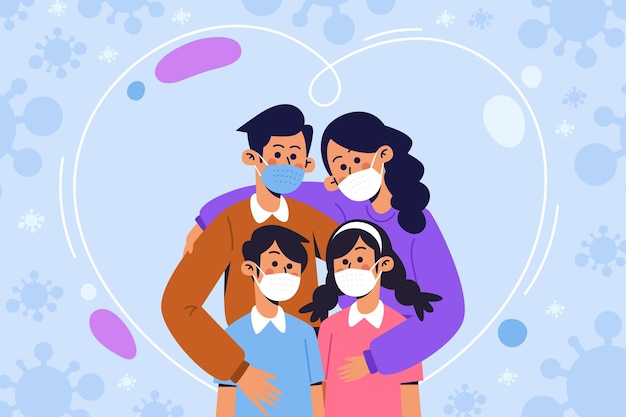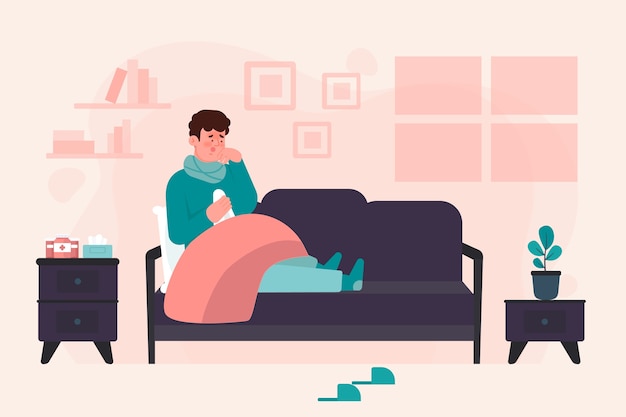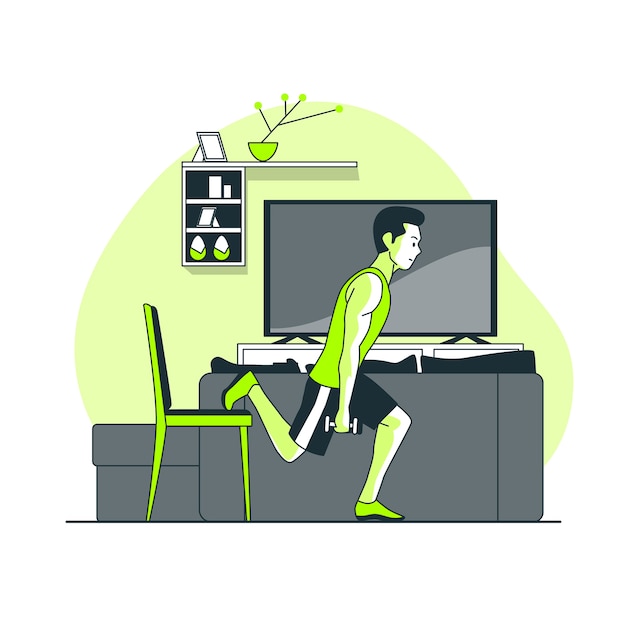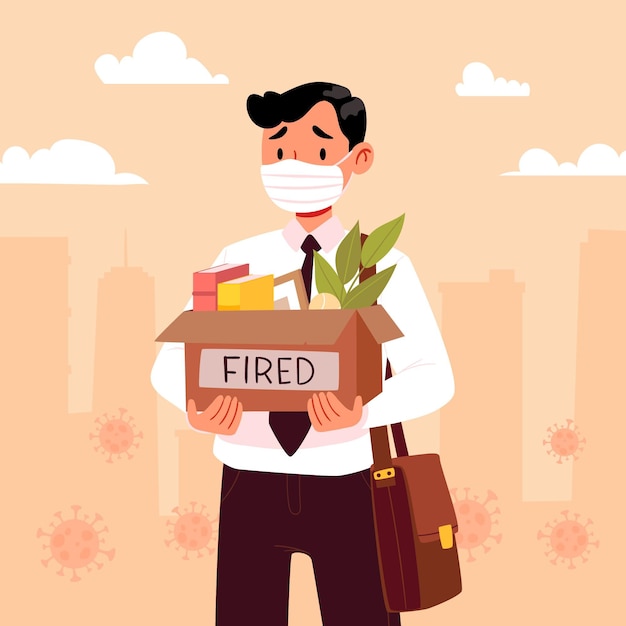
In Leprosy, Plague, Severe Acute Respiratory Syndrome (SARS), and, most recently, COVID-19, quarantine, and isolation were used as disease control steps.
COVID-19 is a worldwide pandemic that has resulted in a vast number of deaths and infected individuals. To slow the transmission of the COVID-19 virus, policymakers have placed a population-wide quarantine.
The current pandemic of COVID-19 is an alarming occurrence in terms of the implications for the physical and mental health of people and society at large. Basically, Loss of liberty, confusion about disease status, and boredom contribute to an irritating quarantine experience. Healthcare workers, governments, and everyone else walk the fine line between keeping the vulnerable alive and preserving a fragile economy.
Psychological effects of Covid-19:

Family vector created by pikisuperstar on freepik
Financial instability, boredom, anger, feeling burdened, isolation, and paranoia are all contributing factors to mental health problems. Also, losing jobs is a major influencer. It might result in anxiety, depression, suicide, and self-harm.
Although Covid 19 is undeniably difficult and stressful, most young, stable adults will suffer no long-term effects other than a week or two of coughing and fever. Mild cases (those that do not necessarily require hospitalization) normally recover in two weeks.
The elderly and those with chronic medical problems such as heart disease, lung disease, or cancer are particularly vulnerable to the Covid 19 virus. Maybe no segment of the community has suffered the virus’s effects more acutely than those in the medical profession.
Doctors, nurses, EMTs, and those on the front lines of the war to stop the spread of Covid 19 are repeatedly exposed to the infection.
Also speaking of children — an increase of restlessness, irritability, anxiety, clinginess, and inattention as a result of increased screen time.

Free Vector People vector created by freepik
People who were quarantined felt embarrassment, terror, and anger. We stress the importance of providing straightforward and easy-to-understand knowledge when dealing with infectious diseases. To prepare for any outbreaks of infectious diseases, health care professionals need practical tips on managing and stress control strategies.
When a loved one suffers from all of these mental health problems, check in on him or her daily. Assist them in seeking accurate facts and practical ways to avoid infection. Support friends who are suffering from mental illness by doing errands for them or helping them to get some fresh air and sunshine.
Physical effects of Covid-19:
It is fair to conclude that lockout policies have drastically altered work and transportation-related physical practices. Leisure time habits are impacted as well as outdoor recreation centers, possibly leading to a further reduction in already poor levels of physical activity among the general public.

People vector created by stories
Even in young healthy people, lowering ambulatory exercise from a moderately high level (approximately 10.000 steps/day) to a low level (less than 2500 steps/day) is dangerous. It causes metabolic maladaptations, such as elevated intraabdominal and ectopic fat production, and hyperinsulinemia.
Decreased physical activity can damage multiple organs and functions.
These symptoms may be more severe and difficult to recover in many more susceptible individuals, including those of the chronically ill and the elderly.
Economical effects of Covid-19:

People vector created by freepik
Many workers either lost their jobs. Few had their salaries reduced. The unemployment rate has risen in all global economies. When areas of the economy, such as tourism and hospitality, have come to a halt, millions of employees have been put on government-sponsored job retention programs.
Small businesses without any online presence are the most affected by the pandemic. Moreover, In a continuing attempt to limit the risk of the coronavirus, an increasing number of companies have requested that their workers opt to work from home (WFH).
Digital effects of Covid-19:
At both the corporate and market levels, digital growth has accelerated dramatically. The pandemic has brought society to a tipping point where the adoption of technology is no longer a choice but a must. Family, friends, and colleagues use video conferencing applications like Zoom and Skype to keep in contact. In the midst of the pandemic, Zoom witnesses a surge in revenue.
The COVID-19 pandemic has brought new approaches to education. Educational institutions all over the world are supporting online learning.
Ways to deal with the effects of the quarantine
- Limit your intake of information. Constantly checking for coronavirus updates on news and social media outlets will only fuel your fears. Choose one or two credible media sources and check only once or twice daily. Ruminating on the pandemic will not help your mental state.
- Exercise. Exercise releases endorphins (chemicals in your brain that stimulate happy feelings). Do jumping jacks, stretch, do push-ups, or try a workout video from YouTube. Here is an article on turning household items into gym equipment.
- Talk to a therapist. Remote telehealth visits via Zoom, Skype, or other telecommunication technology are at your service. If you don’t have a therapist, call the National Alliance on Mental Illness hotline at 1-800-950-6264.
- Avoid alcohol and drugs. Both are hazardous to your mental health and will only exacerbate your symptoms. Ask a partner or friend to help you be accountable if this is a struggle for you.
- Get a good night’s sleep. Beginning the day well-rested is much more likely to make problems and fears seem manageable. Insufficient sleep is a major contributor to depressive and anxious symptoms. To the extent possible, go to bed at the same time each night and get adequate rest.
Conclusion:
Although quarantine and social isolation seem to be necessary for the time being, potential undesirable social, psychological, health, and economic effects must also be addressed.
In hazardous conditions, mental health providers must stress the importance of accurate evidence and social resources for health care personnel. Also, for individuals who need health treatment, accessible and timely referral paths should be established. Mainly, To plan for any outbreaks of harmful infectious diseases, we should remember the main lessons learned from the SARS epidemic.
While it’s certain that the novel coronavirus outbreak has brought a lot of misery and fear, it’s also certain that this pandemic will not last forever. Also, for more Covid-19 related articles, click here.
People vector created by freepik – www.freepik.com
Sports vector created by stories – www.freepik.com






[…] For more articles, click here […]